
Starting June 1st, 2023 Our warehouse fee will be $0.65/cubic foot per month
In effort to lower the warehouse storage fee during inflation, we have went narrow aisle racking.This construction took us four months but the project is finally completed. With narrow aisle racking, we are able to drop storage by 24%.We as partners will go through this inflation together.
12/04/2023
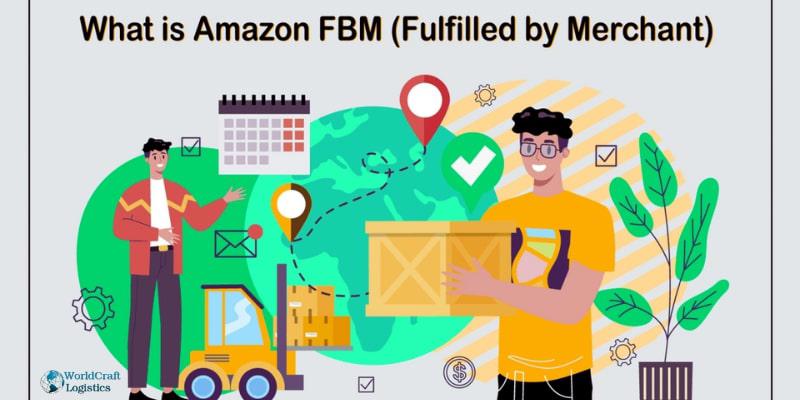
Amazon Fulfilled by Merchant (FBM) is a fulfillment approach wherein an Amazon seller assumes full responsibility for fulfilling the orders made on Amazon. FBM can be overseen directly by the seller or in collaboration with a third-party logistics service provider.
Unlike the scenario where your products possess Prime status and you leverage Amazon's fulfillment centers for inventory storage while entrusting their team with the fulfillment process, with FBM, the merchant takes charge of inventory storage, placement, order fulfillment, returns, and customer service.
You may be interested in these articles:
Maximizing Profit: How to Minimize Amazon Pick and Pack Fee Costs
What is Amazon LTL Shipment? Specific instructions to help you save money
What is an Amazon PPC campaign? Useful information for beginners
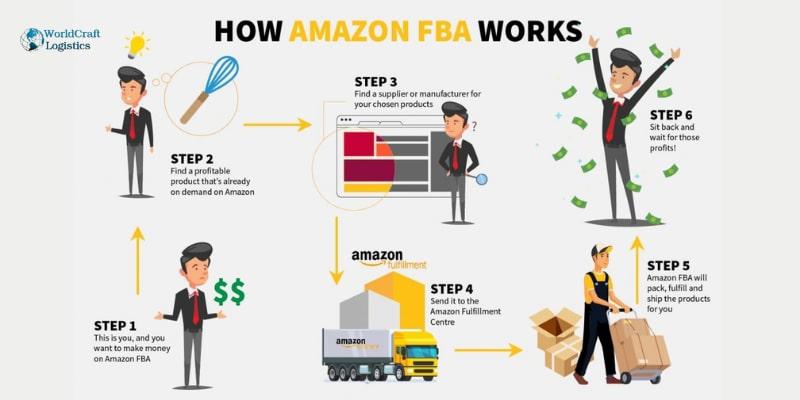
Once sellers have set up their Amazon seller accounts and created product listings, they face a crucial decision regarding how they want to fulfill customer orders. They can either leverage Amazon's fulfillment network and have Amazon handle order shipping on their behalf, a method known as Amazon FBA, or they can opt for the FBM (Fulfillment by Merchant) approach, where they manage the entire fulfillment process themselves.
Merchants following the FBM route take on the responsibility of shipping orders to the customer's specified delivery address directly from their warehouse or storage location. The MFN (Merchant Fulfilled Network) seller is also in charge of managing returns and providing customer service.
For Amazon sellers choosing the FBM method, it's essential to consider the cost of FBM shipping. They must seek out reliable and, most importantly, cost-effective shipping and delivery partners. If the expenses associated with FBM shipping outweigh the fees incurred with FBA, it may not be a financially viable choice for merchants, as it could negatively impact their profit margins.
FBM (Fulfillment by Merchant) can be a suitable choice for product fulfillment on Amazon in these scenarios:
Unique or customized products.
Frequent changes or updates to listings.
Cost-effectiveness.
Large or bulky items.
Serving a local or niche market.
Brand control.
Testing new products or markets.
Low sales volume.
Perishable or seasonal items.
Direct customer engagement.
Evaluate these factors to determine if FBM aligns with your specific business needs. You can also combine FBA and FBM for flexibility in fulfillment.
Before delving into the specifics of shipping products through Amazon's Merchant Fulfilled Network, let's explore some advantages and disadvantages of using Amazon FBM, as per data from partner of Worldcraft Logistics 2022 - State of the Amazon Seller Report.
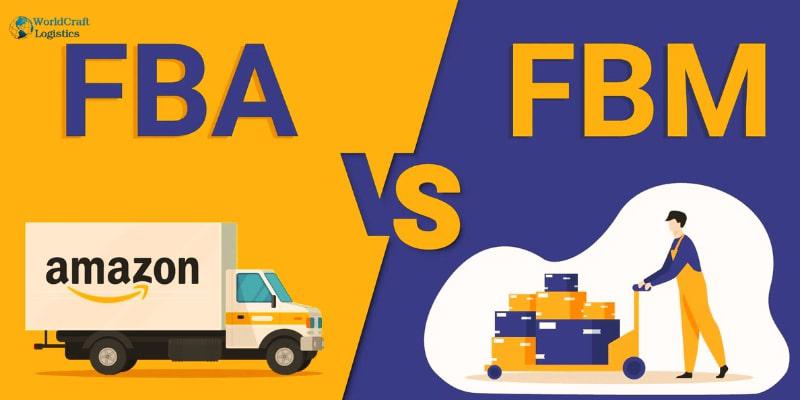
FBA and FBM are two prominent fulfillment methods on Amazon, and understanding their differences is crucial for making informed decisions in your e-commerce business. Here's an in-depth comparison to help you grasp the nuances between these two approaches:
| FBM (Amazon Fulfilled by Merchant ) | FBA (Amazon Fulfilled by Amazon) | |
| 1. Fulfillment Responsibility | As the seller, are responsible for these aspects, including inventory management, order processing, and customer support. | Amazon takes full responsibility for storing, packing, shipping, and handling customer service for your products. |
| 2. Inventory Storage | You manage and store your inventory, allowing for more control over your stock and storage costs. | Amazon stores your inventory in its fulfillment centers, often distributed across various locations. |
| 3. Shipping and Delivery | You or your chosen logistics provider manage the shipping process and can offer various shipping options. | Amazon handles all shipping and delivery, including Prime-eligible orders, with its extensive distribution network. |
| 4. Prime Eligibility | Prime eligibility depends on your own shipping capabilities and the speed at which you can fulfill orders. | Products are eligible for Amazon Prime, providing customers with fast and free shipping. |
| 5. Control Over Packaging and Branding | You pay fees for storage, fulfillment, and other services, but these may be offset by Amazon's efficient operations. | You have more control over costs, but you incur expenses related to inventory storage, shipping, and customer service. |
| 6. Costs and Fees | You have more control over costs, but you incur expenses related to inventory storage, shipping, and customer service. | You pay fees for storage, fulfillment, and other services, but these may be offset by Amazon's efficient operations. |
| 7. Flexibility | Provides more flexibility for quick changes to listings, prices, and inventory levels. | FBA offers convenience but may have longer processing times for inventory updates and changes. |
| 8. Customer Service | Amazon handles customer inquiries and returns, streamlining customer service. | You are responsible for addressing customer queries and managing returns. |
| 9. Seasonal and Niche Products | Suitable for sellers with high-demand, consistent sales. | Ideal for seasonal or niche products with varying demand. |
| 10. Risk Management | You assume risk for inventory damage or loss when storing products. Understanding these differences is essential to determine the best fulfillment method for your specific products, business model, and growth objectives on the Amazon platform. | Amazon manages risk related to inventory loss or damage in their fulfillment centers. |
Amazon FBM (Fulfillment by Merchant) involves several fees that sellers should consider when managing their fulfillment. These fees can impact the overall cost and profitability of your Amazon business. Here are the various fees associated with Amazon FBM:
This is a percentage of the item's sale price and varies by product category. It is typically around 15%, but it can be higher or lower depending on the category.
The cost of shipping the product to the customer, which is determined by the shipping method, distance, and package weight and dimensions.
Amazon charges a monthly subscription fee for a Professional Seller account, which allows you to list an unlimited number of products. The fee varies by the marketplace and can range from $39.99 to $39.99 per month.
In addition to the referral fee, Amazon may charge a per-item fee, which is usually $0.99 per item sold. This fee is common for individual seller accounts.
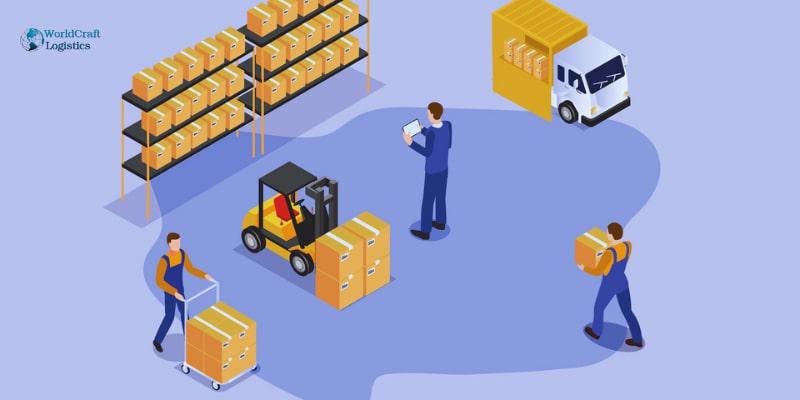
If you require specific packaging or labeling, you'll incur additional costs for shipping supplies and labels.
Amazon charges a fee when processing returns on your behalf, which can vary depending on the size and weight of the returned item.
If your products require labeling and you choose not to label them yourself, Amazon can charge a labeling fee per unit.
If you opt to use Amazon's packaging and prep services for FBM orders, there may be additional packaging fees.
If your products remain in Amazon's fulfillment centers for an extended period, you may incur long-term storage fees, typically assessed semi-annually.
If you need to remove your inventory from Amazon's fulfillment centers, a fee may apply based on whether you want the items returned to you or disposed of by Amazon.
These fees can vary based on factors such as the product category, fulfillment method, and marketplace. It's essential for Amazon sellers to carefully track and calculate these fees to ensure that their pricing and business model remain profitable.
Worldcraft Logistics is your trusted partner in optimizing your supply chain operations. Our services are designed to not only streamline your logistics but also deliver significant benefits to your business. Here's how Worldcraft Logistics can help you save time and costs while ensuring swift and efficient deliveries:
Efficient Routing and Planning: We utilize advanced route optimization technology to ensure that your deliveries follow the most efficient routes, reducing travel time and fuel costs.
Real-time Tracking: Our tracking systems provide real-time visibility into the status and location of your shipments, allowing you to monitor progress and address potential issues promptly.
Inventory Management: We offer comprehensive inventory management solutions, ensuring that you maintain the right amount of stock on hand to meet customer demand without overstocking, which can tie up capital.
Customized Solutions: Our logistics experts work closely with you to develop customized logistics solutions tailored to your specific business needs, helping you cut unnecessary expenses.
Cost Optimization: By consolidating shipments, using cost-effective transportation modes, and minimizing unnecessary handling, we help you reduce transportation costs while maintaining service quality.
Responsive Customer Service: Our team is committed to providing excellent customer service. We are here to assist you in managing logistics challenges and resolving any issues promptly.
Delivery Speed: We understand the importance of fast and reliable deliveries in today's market. Our streamlined processes and optimized routes ensure that your products reach your customers promptly.
Technology Integration: We leverage cutting-edge logistics technology to provide data-driven insights, helping you make informed decisions and continuously improve your supply chain.

By choosing Worldcraft Logistics - Full service for Amazon FBM, you are investing in a partner dedicated to enhancing your operational efficiency, reducing costs, and ensuring that your customers receive their orders promptly. We are committed to helping you gain a competitive edge in your industry while also contributing to a more sustainable and environmentally friendly logistics network.
Amazon FBA has strict packaging requirements, but Amazon FBM places the responsibility of delivering products on the seller. The product must be of high quality and reach the buyer within the designated delivery time. While there are no specific packaging requirements for FBM, sellers must ensure secure packaging to prevent damage and include the shipping label on the package.

Which Fulfillment Method Suits Your Business Best? FBA shines when dealing with high-volume, higher-margin products, particularly when sellers prefer to offload the responsibilities of storage and shipping. On the other hand, FBM proves more advantageous for smaller-scale ventures, products with slim profit margins, or occasional, unique items, where sellers are willing to manage the warehousing and shipping process themselves.
If you value greater control over your inventory and customer experience, FBM might be the preferred choice. However, if the idea of Amazon shouldering the burden of storage and handling returns appeals to you, FBA is the way forward.
SEO
Digital Marketing/SEO Specialist
Simon Mang is an SEO and Digital Marketing expert at Wordcraft Logistics. With many years of experience in the field of digital marketing, he has shaped and built strategies to effectively promote Wordcraft Logistics' online presence. With a deep understanding of the logistics industry, I have shared more than 500 specialized articles on many different topics.

Amazon Handbook
02/20/2023
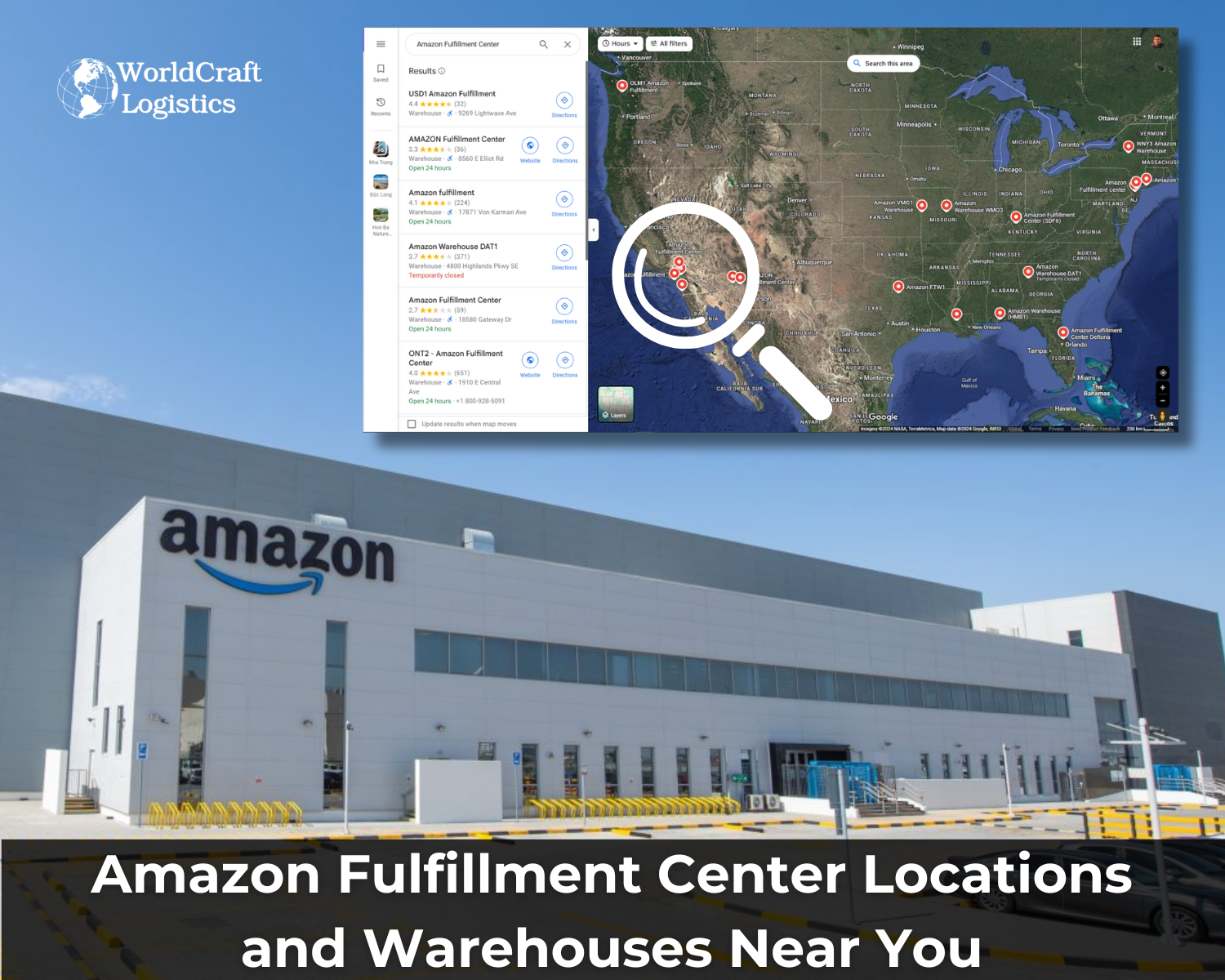
Amazon Handbook
11/10/2024

Amazon Handbook
09/15/2024
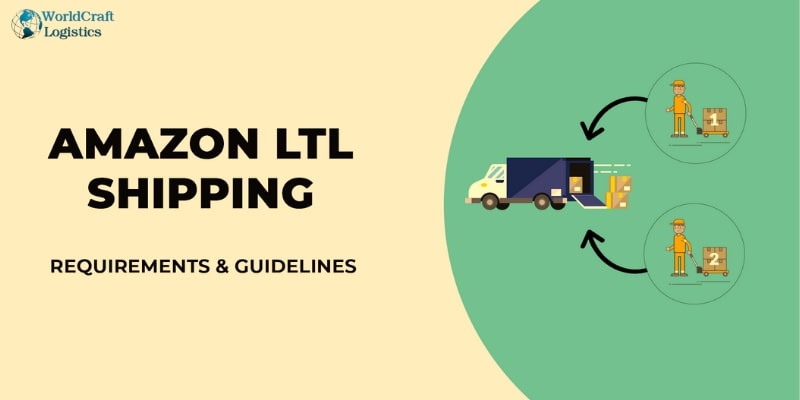
Amazon Handbook
10/15/2023
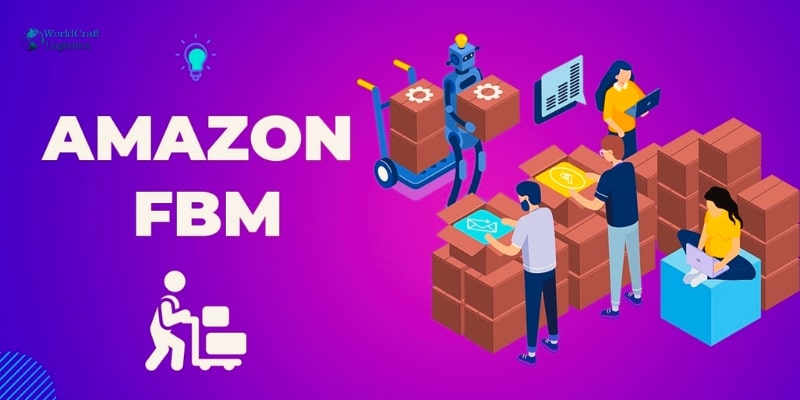
Amazon Handbook
12/04/2023